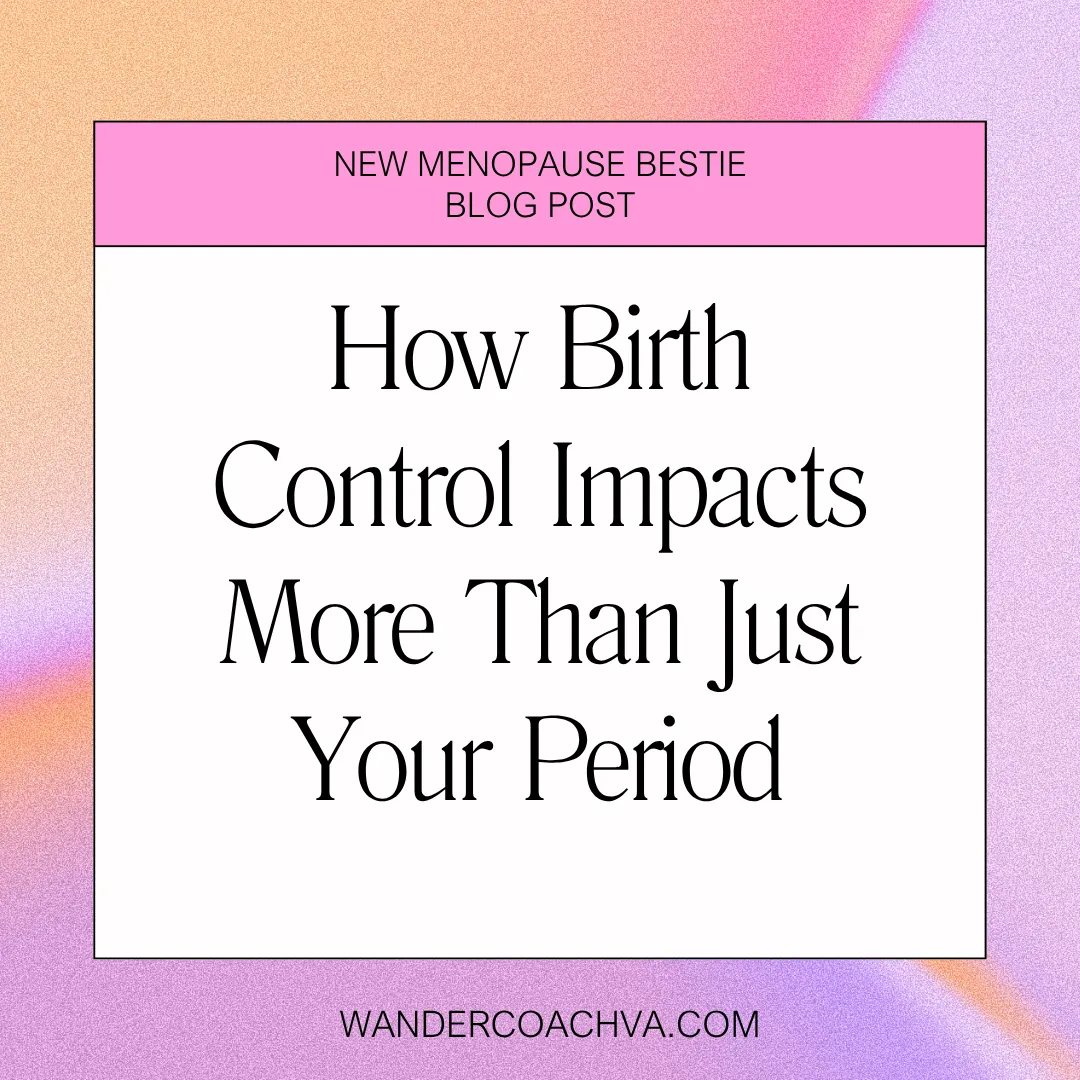
The Hidden Impact of Birth Control: What You Were Never Told About Ovulation and Your Health”
You probably started birth control for one simple reason: to avoid getting pregnant.
But what if you were never told the full story?
Millions of women are prescribed hormonal birth control in their teens and stay on it for decades—without understanding that it does more than prevent pregnancy. It shuts down ovulation, and with that comes a cascade of changes to your hormones, metabolism, mood, and long-term health.
This isn’t about fear. It’s about informed choice—and understanding how birth control works so you can make the right decisions for your body now and in midlife.
The Role of Ovulation (It’s Not Just About Fertility)
Let’s get one thing straight: ovulation is a sign of health.
When you ovulate, your body produces estrogen and progesterone in a natural rhythm. These hormones do much more than support fertility:
Estrogen helps build bone density, supports brain function, and keeps skin, hair, and mood healthy.
Progesterone calms your nervous system, supports thyroid function, stabilizes mood, and balances blood sugar.
Without ovulation, you miss out on that natural, monthly surge of these protective hormones.
That’s why women who don’t ovulate for years (due to birth control, menopause, or irregular cycles) often experience:
Mood instability and anxiety
Weight gain and blood sugar issues
Low libido
Fatigue and brain fog
Increased risk of osteoporosis and thyroid dysfunction
Ovulation is the main event of your cycle. Suppressing it doesn’t just pause fertility—it alters the entire hormonal symphony of your body.
How Hormonal Birth Control Works
The most commonly prescribed hormonal birth control methods include:
The Pill (OCPs) – A combination of synthetic estrogen and progestin, taken daily.
Hormonal IUDs (like Mirena, Kyleena) – Inserted into the uterus, releasing synthetic hormones locally.
The Implant (Nexplanon) and Vaginal Ring (NuvaRing) – Less common but increasingly used options.
These methods prevent pregnancy primarily by suppressing ovulation.
They trick your body into thinking it’s already pregnant by flattening your natural hormone fluctuations. That means:
No real cycle
No true menstruation (just a withdrawal bleed)
No progesterone from the ovaries
And no natural hormone rhythm to support your metabolism, mood, or energy
The Birth Control Band-Aid: Treating Symptoms Instead of Root Causes
Here’s the thing: most women aren’t just put on the pill to avoid pregnancy.
They’re put on it to silence symptoms their doctors didn’t have time—or training—to fully explore.
Raise your hand if you were prescribed birth control for:
Heavy bleeding or irregular cycles
Painful periods or endometriosis
Acne or PCOS
Mood swings or PMDD
“Balancing hormones” after stopping another method
These are some of the most common reasons young women are prescribed hormonal birth control, often starting in their teens or early 20s.
But here’s the truth they didn’t tell you:
Birth control doesn’t fix those problems.
It masks them by shutting down your natural hormone production.
Example:
Heavy periods: The pill thins the uterine lining—but doesn’t address the estrogen dominance, inflammation, or low progesterone that caused it.
Acne: Synthetic hormones reduce oil production—but they don’t fix gut imbalances, blood sugar issues, or nutrient deficiencies that drive breakouts.
Over time, this “shut it down and hope it goes away” approach leads to:
Worsened symptoms when you come off the pill
No understanding of your actual hormone health
A complete disconnection from your body’s signals
It’s not your fault.
This is a system problem. And it’s time to change it.
The Side Effects You Weren’t Told About
Yes, birth control is convenient—but convenience often comes at a cost.
Here are some lesser-known side effects of long-term hormonal birth control use:
Gut health disruptions
Nutrient depletion (especially B vitamins, zinc, magnesium)
Thyroid suppression
Increased anxiety and depression
Decreased libido
Higher inflammation markers
Altered cortisol and stress response
These effects are rarely discussed in doctor’s offices, but they’re backed by years of data and lived experience from thousands of women.
What If You Want to Come Off Birth Control?
First—good on you for asking questions. Coming off hormonal birth control is not something to rush or do blindly. Here's what to expect and how to support your body:
Post-pill symptoms may include:
Breakouts
Irregular or missing periods
Mood swings
Fatigue
Weight changes
Support your body through:
Nutrient replenishment (especially magnesium, B6, zinc)
Seed cycling and hormone-friendly foods
Gentle detox support (sweating, fiber, hydration)
Mindful movement
Sleep, stress management, and yes—cycle syncing
This is where Sync & Soul starts to become a powerful tool in your life (more on that soon).
Why This Matters in Perimenopause
If you’re in your 40s and still on hormonal birth control, you might be wondering:
“Is it helping or hurting my transition into menopause?”
Here’s the truth: synthetic hormones can mask perimenopausal symptoms, making it harder to know what’s actually happening in your body. Many women feel disconnected, frustrated, and out of sync.
If you’re experiencing fatigue, weight gain, mood swings, or anxiety—it could be from your body trying to communicate beneath the hormone suppression.
Understanding and honoring your natural rhythm—through ovulation, syncing, and support—can help you feel like yourself again.
Your Hormones Aren’t the Problem. Your Suppression Is.
You deserve to know how your body works. You deserve to understand how powerful ovulation is for your long-term health.
Whether you’re still on birth control, thinking about coming off, or already have—this isn’t about shame. It’s about reconnection.
Want to know where your hormones stand now?
Take my free Hormone Blueprint Quiz—your first step to understanding your cycle, your symptoms, and your body’s natural rhythm.
👉 [Take the Quiz Now]
👉 [Read More Blogs at Your Menopause Bestie]